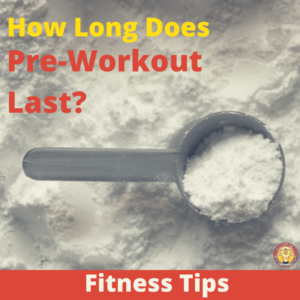Do you wake up in the morning thinking about a certain type of food? Do you find yourself compelled to eat certain foods even when you know they aren’t good for you?
If you have answered yes to either of these questions, then you might have a food addiction.
What is a Food Addiction?
This is a newer term that is still controversial in the medical field because there isn’t any way to prove its existence with medical tests.
However, many scientists and doctors, alike, have come to recognize this as food addiction.
Much like drug addiction and alcoholism, food addiction is a serious disease that needs to be managed properly to avoid any negative side effects or to help reverse ones that have already occurred.
However, you do not need to worry because there is hope in being able to identify your food addiction and get help.
Common Food Addiction Symptoms
There are ways for you to curb your food addiction to help you eat healthier, but first, you need to know the symptoms you have that indicate you have a food addiction.
After all, you can’t curb something that you do not understand or that you do not believe actually exists.
7 of the most common symptoms of food addiction are:
- You craving certain foods, even when you just finished a nutritious meal.
- You feel the urge to hide from others the unhealthy food you are eating.
- You feel the need to justify and make excuses for why your food craving is a good thing.
- You find yourself eating certain unhealthy foods until you are excessively stuffed.
- You can’t control the consumption of your craved food, even knowing that it will do you physical harm to eat it.
- You have repeatedly tried to stop eating certain foods or not following the rules you set for eating those foods are unsuccessful.
- Once you start eating certain types of foods, you find that you eat more than you have intended.
Having just one of these symptoms now and again doesn’t mean you have a food addiction, but if you find that you experience multiple symptoms regularly, you very well could be suffering from food addiction, and it may be time to curb your addiction before it gets any further out of control.
Food addiction is a relatively new term that is still considered controversial in many circles, but many studies suggest that it exists.
However, unlike other diseases and addictions, there aren’t any medical tests that can verify it as a diagnosis.
Sugary soda, high-fat fried foods, and candy are some of the junk foods that have been problematic for those with food addiction, and like most addictions, it can affect your brain and physical fitness.

The Harmful Effects of Food Addiction
For years, people have said that eating too many sweets and bad foods was a lack of willpower, but this is not the cause.
Food addiction to these types of foods is believed to be caused by dopamine, which can affect the brain’s biochemistry.
Although it might not be viewed as bad as drug addiction, food addiction is still a serious problem.
Not only can it cause you physical harm, but it can be a leading factor in different chronic conditions, like type 2 diabetes and obesity.
Not to mention, it can be mentally harmful as well because it can impact your self-image and damage your self-esteem by becoming unhappy with your body.
This can sometimes be more harmful to you than even the physical aspects of food addiction because it will reflect on how you feel about yourself.
This being said, avoiding junk food entirely might seem like an impossible task because it is such a major part of modern culture.
However, it can be necessary for your health, and you should take precautions to ensure you are taking care of yourself not only for yourself but for your loved ones, as well.
After making the decision to not eat your trigger foods, it can become easier if you avoid places where you might be tempted by them.
By just avoiding places where you come in contact with your trigger foods, your cravings could disappear entirely or at least decrease significantly.
Replacing Trigger Foods
If it isn’t possible for you to avoid them entirely, you should think of foods you enjoy from those places that are healthier to help keep you from falling off the wagon and ordering your trigger foods.
Pros and Cons
Once this decision has been made, you should write a detailed pros and cons list to help you think through the various decisions that need to be made to ensure your decision stands.
Everyone will have different pros and cons for doing what they are doing, but here are a few examples that you might use or help to inspire your own.
Pros. I want to live longer and feel better. I want to lose extra weight and have more energy throughout the day.
I want to be happy with how I look and not feel embarrassed when out in public with my friends and family.
Cons. I might have to explain my choices to people who do not understand. I may have to avoid some family activities, like getting ice cream or watching what I eat on holidays.
When writing your pros and cons list, it is important for you to write everything down, regardless of how vein or strange it might sound.
This is the only way you can make an accurate and informed decision.
You cannot truly begin curbing your food addiction until you acknowledge that you have a problem and something that needs to be corrected in your life, just like with any other type of addiction.
Once finished, if the list is a resounding yes, then you should feel assured that you are making the right decision.
It is also important to remember that although many social dilemmas might appear on the con side of your list, there are many ways around them that can easily resolve them.
Since food addiction cannot be medically confirmed, pros and cons lists can help get rid of any uncertainty that might arise when you are thinking of curbing your food addiction by staying away from your trigger foods.
After confirming that you have a food addiction that needs to be overcome, there are a few things you will need to do to start curbing your appetite.
Next, you will want to think about your trigger foods.
These are the foods that you should avoid completely because they will cause binges and/or cravings, and then you should write down these trigger foods so you can physically see them.
You should consider foods that you enjoy eating already but are healthy and will help to steer clear of your trigger foods.
This will provide you with options when you are tempted to go for your trigger foods, while still enjoying the taste of the food you are eating.
Avoiding Fast Food
Finally, if you are a fan of fast food places, then you should make a list of the ones that have healthy foods on their menus. This will help to remove the trigger temptation for ordering foods when you do not feel like cooking.
When you are thinking about putting a stop to your food addiction, you shouldn’t start with weight loss as one of your first priorities.
Even if it is something that you want to accomplish, you do not want to take on too much at one time.
If you add hunger and restrictions to the mix when trying to overcome food addiction, you might give up because it being too hard.
So, you should plan for the future to help ensure that you do not fall back into bad habits.
If weight loss is one of your priorities, you should set a day at least a month to three months away to start focusing on this aspect.
By then, you will be more mindful of staying away from your trigger foods.
To be able to successfully curb your food addiction, you should be willing to make a plan and stick to it.
All of the previous steps will help to ensure you are able to manage and steer clear of your trigger foods by replacing them with healthier choices that you can eat instead.
When looking to curb your food addiction, there is one thing that you should always remember. It is ok to fail, as long as you do not give up and try again.
Getting Help With Your Food Addiction
Curbing food addiction is a difficult thing to take on, but in the end, it will be worth it to help you in your life.
Just like with any type of addiction, most people will quit before they succeed in kicking their addiction in the long run.
This is nothing to be ashamed of. Plus, it is alright to ask for help to get over your food addiction.
If you have failed a couple of times, you might even seek out a psychiatrist or a psychologist who has experience in helping their patients with food addiction.
One-on-one support can be the thing that makes the difference for you, but there are also several free support groups that you might seek out.
Food Adicts in Recovery Anonymous (FA) and Overeaters Anonymous (OA) are just a couple of examples of 12-step programs that might be able to help provide you support in becoming successful with curbing your food addiction.
Basically, there are a number of ways that you can curb your food addiction. Some of these will involve the help and support of other people, and some will be directly on you.
However, it is important to know that it is possible and you can curb your food addiction, regardless of how strong it is if you really wish to.
This is important because if you are not in the mindset that you WILL curb your food addiction, then you will fail with or without help.
It is a mindset that you must be willing to commit to in the long wrong and not be discouraged if you fumble a little along the way.

Final Thoughts
The first and most important thing that you will need to remember is before you can curb a food addiction, you have to admit that you have a food addiction, to begin with.
It is only then that you can start with the other steps to help curb that addiction.
Finally, you need to remember that curbing your food addiction will take time and is not something that will happen overnight.
You should know your limitations and remember that you can take it one step at a time to make sure that in the long run, you succeed in curbing your food addiction and making your way to a healthier life, both physically and mentally.



